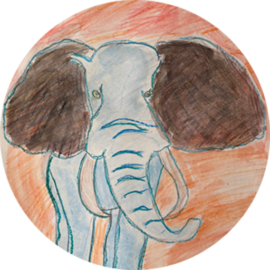Smarter isn’t Better : the Surprising Truth About High Output Teams
What’s the factor that allows some teams to achieve the seemingly impossible? This is something Demis Hassabis has given a lot of thought. A master chess player in kindergarten, he sold his company DeepMind to Google before the age of forty. Yet for all his brilliance, solving the team equation only seems to get harder.
Hassabis is overseeing the construction of DeepMinds new company head quarters in London when Wired magazine meets him for an interview published in the september issue. After building an algorithm that beat world champion Lee Sodol in the complex boardgame Go, Hassabis has had enough of playing games, DeepMind is now turning to the real world for challenges.
Predicting how DNA strings will fold to form proteins is one of the toughest problems in computational biology. Doing it randomly, even just for one single protein of typical size, would require more time than our universe has currently existed. The perfect challenge for the worlds smartest company.
But biology is messy and a new level of thinking is required to unravel its mysteries. Where teams were previously made up largely of computer science wizards, the company is now recruiting the best talents in fields as diverse as philosophy, genetics and biology. And it turns out you can’t just put the best people from different fields in a room and wait for synergy to happen.
Because being the best in a particular field means you’ve devoted your whole life to intense specialisation and that you’ll have a hard time even understanding what language the expert next to you is speaking, let alone acquiring the knowledge and the mindset that would allow you to grasp what the real difficult problems are in that experts field.
Plus, the problem is compounded since it’s becoming increasingly hard to keep up with new knowledge produced even in one field. And nevertheless: in order for the next breakthrough within artificial intelligence to happen there is no other way than to create truly cross-disciplinary teams, at least not in Demis Hassabis book. So how do you go about it?
At DeepMind the answer seems to be to aggressively search for what Hassabis refers to as ‘glue people’, that is individuals that are world leading within more than one field. The idea is to find those rare talents at all cost, and drop them into the mix like mad scientist paratroopers, able to connect unexpected dots where others can’t.
It’s an approach that seems to be working for now, many agree that DeepMind is leading the ferocious race towards developing generalised artificial intelligence. Still though, it does make you wonder about the future of productive team work. Interestingly Google — DeepMinds mother ship — once performed a giant research project code named Oxygen with the mission to understand what makes a team particularly productive, a process that New York Times journalist / author Charles Duhigg describes in depth in his excellent book Smarter, Faster, Better : The Secrets of Being Productive.
As it turns out, the smartest teams actually aren’t the ones with highest accumulated IQ. In fact, peak-performing teams come in all stripes and colours, the only causal relationship that seem to explain success, turns out to be psychological safety. I think that’s interesting.
Another thing that catches my imagination with the Hassabi interview is the fact that he’s using Steve Jobs’ worn old ‘if you want to make a dent in the universe’-quote. Legend has it that it was first said when Jobs tried to get John Scully, then CEO of Pepsi, to step on board with Apple (which he did, and eventually ended up kicking Jobs out).
I like the idea behind this quote. All ventures aren’t created equally, it simply isn’t valuable to humanity to sell sugared water, whereas inventing personal computing probably is. The funny thing, at least in my mind, is that Steve Jobs would probably have abhorred the notion of building a company with a backbone of specialists, glued together by super rare multispecialists. The culture he built at Apple, and that seems to have outlasted him, is very different. Jobs was always inspired by the notion that Apple existed at the crossroads of technology and liberal arts. In this clip from a few months before he passed away, he poetically states that “it’s technology married with the humanities that yields us the results that makes our hearts sing”.
This philosophy always influenced Apple’s recruiting policy. Sure they have to hire some deeply specialised people, but stories from many insiders will testify to the fact that the general company culture promotes those who have a broad and cross-disciplinary expertise (see for example Ken Kocienda’s Creative Selection, Yukari Iwatani Kane’s Haunted Empire : Apple after Steve Jobs, Adam Lashinsky’s Inside Apple and Ken Segall’s Insanely Simple: The Obsession That Drives Apple’s Success). Because it’s only when you see the whole picture that you can create products that take into account the entirety of the user experience.
At my day job we focus intensely on these issues. When people come to us they often have a pretty solid understanding of the technology they want to bring to the market. They’re brilliant inventors, but often clueless when it comes to entrepreneurship. Bridging this gap requires developing new skills. You need to understand how to approach the market, figure out a viable business model, establish an IP-strategy and many other things.
But perhaps the most important lesson you need to learn, is how to build a team that’s robust enough to make it through the thick and thin of starting a business. Most will probably set out thinking that the single most important success criteria is going to be the quality and uniqueness of their technology. They will commonly be blind-sided by the realisation that team dynamics is equally if not more important.
